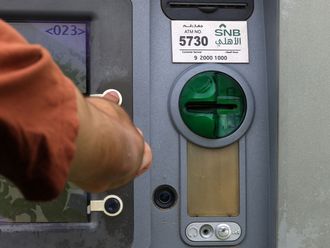Dubai: New UAE federal bankruptcy legislation aimed at decriminalising insolvency and eliminating the stigma attached to it could become a law in a matter of months, according one of the firms that worked on the draft.
Government stakeholders are reviewing the draft before it is presented to the UAE Cabinet, according to James Farn, partner and head of banking and finance at Hadef and Partners.
The proposed changes aim to create a level playing field between creditors and debtors facing bankruptcy or financial difficulties, move away from court-driven procedures and promote a "rescue" culture.
"The idea is to make insolvency law more debtor-friendly," Farn said.
"There are a number of problem areas as existing provisions were creditor-driven rather than helping debtors in financial difficulties.
"The idea is to promote a debtor-friendly rescue culture to help debtors and creditors solve problems even when they are not in a formal insolvency situation, but facing financial difficulties."
Under the proposed law, the UAE Council of Ministers will establish a new commission to help businesses with financial restructuring.
A streamlined bankruptcy procedure will also be available.
Existing provisions
If passed, the new law will repeal the existing bankruptcy provisions in the UAE Commercial Transactions Law. All other bankruptcy-related articles in other UAE legislation will remain untouched.
The penalty for writing cheques that bounce will remain because it comes under the penal code, Farn added.
The new legislation would affect companies incorporated under the UAE Commercial Companies law and individuals engaging in business for profit. Exemptions would be government entities or those operating in financial freezones such as the Dubai International Financial Centre which have their own insolvency laws.
Disqualification order
Debtors penalised under the new law could be disqualified from becoming company directors, Farn said.
"The idea is to decriminalise insolvency," he said.
"Under the existing law if you don't file for bankruptcy when you know you are insolvent then it is a criminal offence. Now that's done away with. Now there's a disqualification order."
The three-stage rescue procedure under the proposed law begins with financial restructuring for businesses in trouble but not yet insolvent. Next the court can appoint an officer to assist the rescheduling of debts, and third formal insolvency is declared.
The legislation is based on those in England and Wales, France and Germany.
"The attempt was to modernise the law, make it more debtor friendly and move away from the stigma of insolvency," Farn said.
"It's to make insolvency more accessible instead of going to court, which frightens people away.
"If they have more confidence in the insolvency system then they can sort out financial problems."












